| The beauty in Chinese words can be found in the composition, history, intent and meaning of the characters. These 10 seemingly simple Chinese words are imbued with beautiful meanings, which can be uncovered by looking closely at their characters. 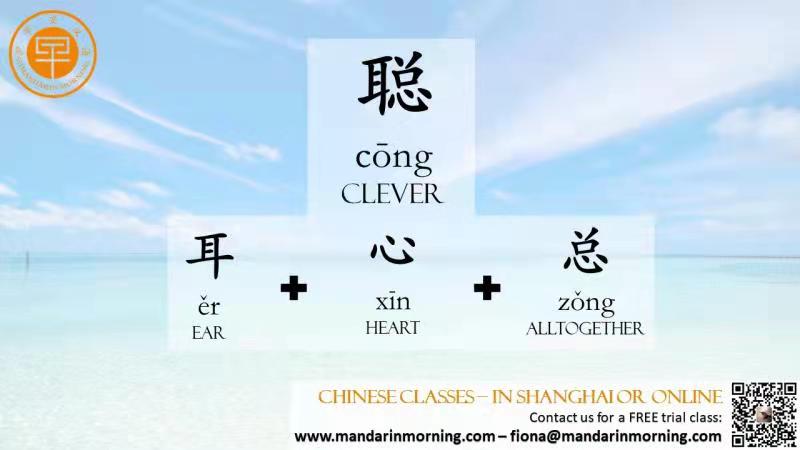 1. 爱 (ài) — to love; affection In its traditional form, 爱 includes the character 心 (xīn), the word for heart. The rest of components represent actions, so all the parts together mean to love with your heart and through your actions. Although 心 doesn’t appear in the simplified version, 爱 does include 友 (yǒu) underneath 冖 (mì), which means bringing a friend into one’s house. In that aspect, the underlying message of affection and bringing a close one to your heart isn’t lost in the simplified character. 2. 串 (chuàn) — to string together 串 is one of those really interesting characters that’s a true visual interpretation of its definition. What looks like two boxes connected by one stick, it’s no surprise that 串 translates as “to string together” and used as a classifier for things that are either skewered (like barbecue) or strung together (like words). 3. 聪 (cōng) — clever Intelligence is more than just brains, and this character for “clever” shows just that. When we take 聪 apart, we have 耳 (ěr) meaning “ear” and 总 (zǒng) meaning “to collect” or “altogether.” 心 also appears in 总, so if you think about it, being smart doesn’t just mean thinking with your head, but it also means that you also have to use your ears and heart. 4. 家 (jiā) — home The word for home or household can be divided into two sections: 宀 (mián) which represents a roof and 豕 (shǐ) which is the word for “swine.” It’s weird to think that a pig plays a part somehow in the definition, but in the past, families were considered to be wealthy if they reared pigs. Chinese culture regards the pig as a symbol of good fortune and prosperity, so 家 may represent the objective to have a well-off household. 5. 明 (míng) — bright; to understand 明 is made up of the characters 日 (rì) and 月 (yuè), the “sun” and “moon” respectively. While the moon is only visible when sunlight reflects off of it, the reason why the two characters are put together is because light can’t exist without darkness. Using that philosophy, 明 can also be related to enlightenment and clarity, included in terms like 明白 (míngbai) which means “to understand” and 说明 (shuōmíng) which is “to explain.” 6. 忍 (rěn) — to endure When we take the components apart, the top portion 刃 (rèn) is “blade” while the bottom portion is 心 or “heart.” Put together, 忍 can be perceived as a knife piercing the heart to demonstrate the pain associated when one has to endure or to tolerate. 7. 森林 (sēnlín) — forest As you can see, 木 (mù) meaning “wood” appears five times in this term, so it’s only natural that characters composed of several 木 would mean a forest or wooded area. The construction of the character is literal and overall very simple, yet there’s such a beauty in this simplicity. 8. 武 (wǔ) — military 武 can be divided into two parts, the first part being 弋 (yì) which was modeled after an ancient weapon and means “to shoot with a bow” or “to arrest.” The second part of this character is 止 (zhǐ), which means to “to stop” or “to desist.” Historically, the Chinese military believed that the true power came from subduing the enemy without the use of weapons, and that weapons were only to be seen as the last resort. 9. 五 (wǔ) — five To the average person, 五 doesn’t seem like it’s anything special considering it consists of five lines, but there’s more than meets the eye with this character. The two lines at the top and bottom make 二 (èr) or “two,” although it also represents heaven and earth. What used to be a cross in the middle later turned into a cross with an extra stroke, meant to symbolize the elements. All in all, the lines stands for the five elements of Wuxing—wood, fire, earth, metal and water. 10. 永 (yǒng) — forever; perpetual Having the same origins as its homonym 泳 (yǒng) which means “to swim,” the earliest manifestation of 永 was actually defined as “to swim with the current.” To give a little background, the character for “water” or 水 (shuǐ) that makes up the bulk of 永, shares the same pictographic derivative as the word 川 (chuān) or “stream.” Thus, the modern interpretation of the 永 paints a picture of a stream or river flowing endlessly, a stunning visual for the Chinese word for “forever.” Semantics aside, the composition itself is also quite elegant, as it consists of the eight basic strokes of the Chinese writing system, balancing out all parts of the character without needing to be symmetrical. #Our teachers # More than 10 years teaching experience Master Degree Certificate for teaching chinese as a foreign language 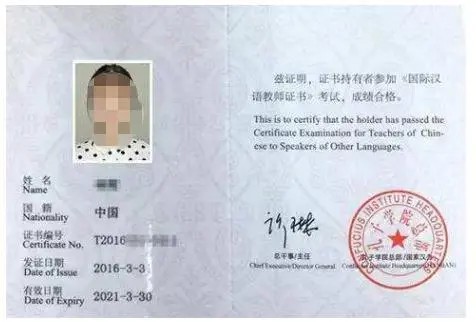 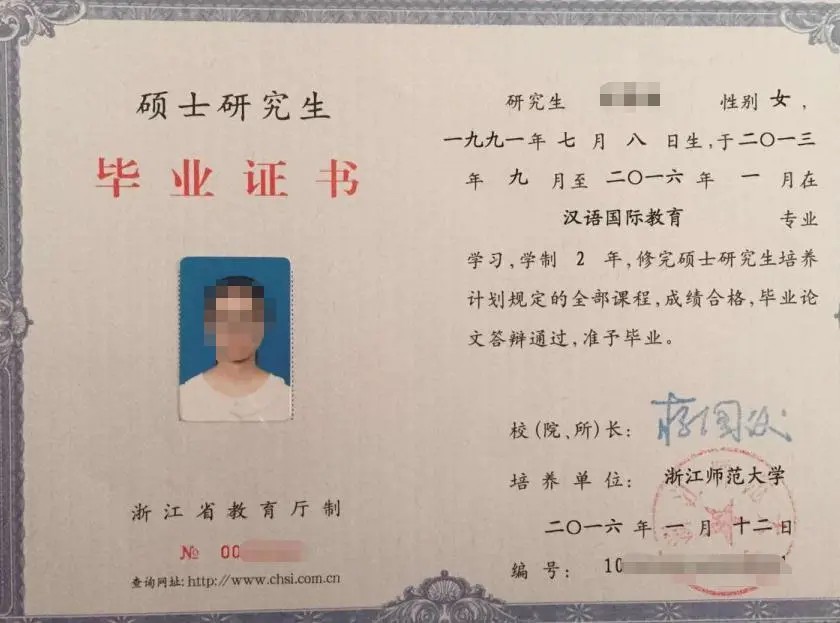 # About us # Founded in 2007 Chinese test and training center 200+ Chinese teachers 5000+ students 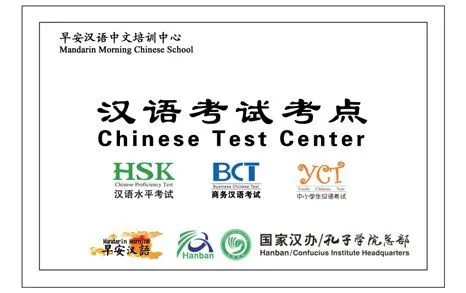 # Contact us# Name:fiona Phone number:021-52287809,13918358891 E-mail:info@mandarinmorning.com www.mandarinmorning.com If you are interested to join Mandarin Morning school or want more details about our services, scan the following QR code. ☟ 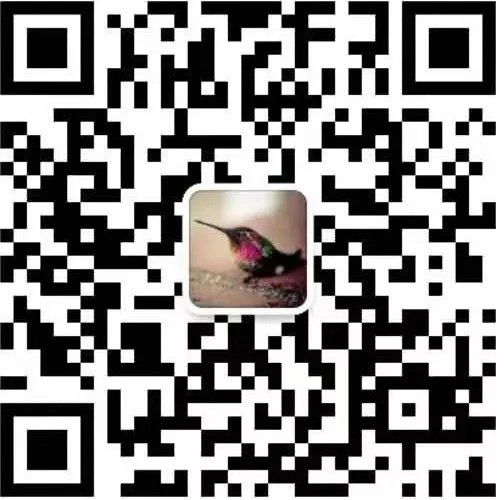  Mandarin Morning Chinese test center attached to Confucius institute headquarters Authorized Test Center and Training Center for International Chinese Language Teacher Certificater 10 years+ ,200 teachers ,more 10000 students,200+companies  |